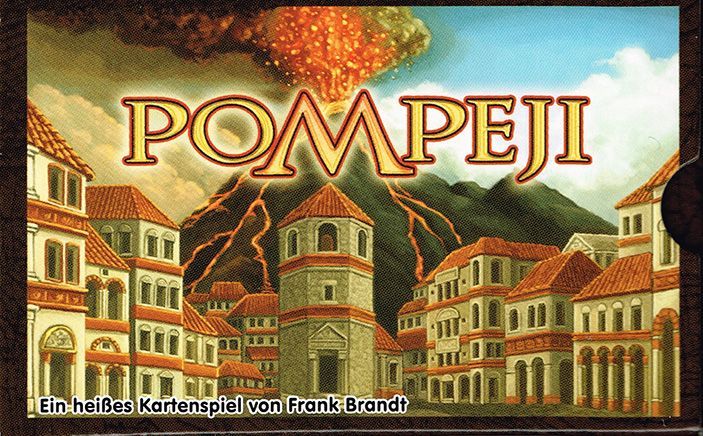Pompeji (2001) Board Game
Pompeji is a board game that was released in 2001 and designed by Dennis Lohausen and Jürgen Martens. The game is set in ancient Pompeii, a city near Naples in Italy that was buried under volcanic ash and pumice in the eruption of Mount Vesuvius in AD
Game Components of Pompeji
How To Setup Pompeji
To set up **Pompeji**, place the game board in the center of the table. Each player receives a set of game pieces based on the number of players: 36 pieces for two players, 30 for three players, and 25 for four players. The dealer separates the “A.D. 79” card and the “Omen” cards from the Pompeii cards, shuffles them, and creates seven piles of four cards each. The “Omen” cards are shuffled back into the remaining Pompeii cards, and the “A.D. 79” card is placed on top of the stock pile along with two of the 4-card piles. Each player picks one of the 4-card piles, and any remaining piles are put back into the box without being looked at.
Gameplay Mechanics and Game Objective
– Play one Pompeii card from hand.
– Place one game piece into a corresponding building.
– Draw a card from the stock pile.
Player Experience
**Pompeji** offers a thrilling experience with a unique blend of strategic card play and frantic tile placement. During the first phase, players strategically place their pieces in various buildings, anticipating the impending eruption. Once the volcano erupts, the game shifts to a fast-paced escape scenario where players must navigate their pieces out of the city, avoiding lava tiles. This dual-phase mechanism ensures a dynamic and engaging gameplay experience.
Pros
Cons
Personal Thoughts on Pompeji
**Pompeji** is an excellent choice for families and casual gamers who enjoy strategic games with a strong thematic element. It is particularly suited for those who appreciate games with clear objectives and a mix of strategy and luck. However, it may not appeal as strongly to hardcore gamers seeking complex, deep strategies or those who prefer games with minimal luck involved. Overall, **Pompeji** is a fun and engaging game that offers a unique gaming experience.
We are supported by our audience. When you purchase through links on our site, we may earn an affiliate commission, at no extra cost for you. Learn more.

